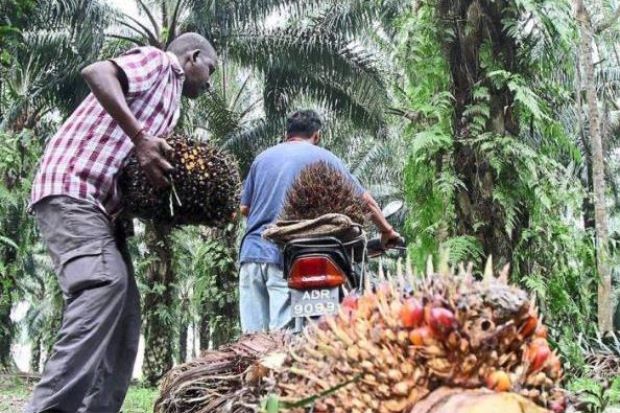
Limited choice: SOPPA says companies in the palm oil industry will prefer to hire locals if there are workers available.
KUCHING: Oil palm plantations in Sarawak have little alternative but to hire foreign workers due to the acute labour shortage for the industry, according to the Sarawak Oil Palm Plantation Owners Association (SOPPOA).
SOPPOA reiterated the concern raised by Human Resources Minister Datuk Seri Richard Riot on the matter and the stringent conditions imposed on companies with regard to hiring workers from Bangladesh to meet the shortage.
These include advertising for locals to fill vacancies to ensure that local jobseekers are given priority for employment, while the company must have a minimum paid-up capital of RM1mil, proper land lease documents from the state government and valid licences from the Malaysian Palm Oil Board (MPOB).
“We fully support the minister on the matter as the lack of workers has been plaguing the industry for years,” SOPPOA said in a statement.
“As stated by the minister, the companies must fulfill various conditions to hire foreign workers from either Indonesia or Bangladesh and to undertake commitments for proper housing, bank guarantees and other labour law requirements stipulated for engaging these workers.”
It said companies in the palm oil industry would prefer to hire locals for the jobs if there were workers available.
“Currently a substantial number of locals are employed as executives, field supervisors and other management-level jobs in the plantation industry here. Many others are employed as skilled and semi-skilled workers in palm oil mills and factories,” it said.
However, SOPPOA said, the number of local workers available was reduced as many native customary rights (NCR) landowners were starting their own estates and needed workers, while mega projects at Samalaju Industrial Park and the oil and gas industry also attracted local workers.
Hence, it said, the plantation companies had no choice but to hire foreign workers to overcome the labour shortage.
SOPPOA also said these companies were subject to labour laws in hiring workers and minimum wage policies were applicable.
“The issue of companies not paying such wages, as alleged by a certain organisation, is totally unfounded,” it said, adding that many workers such as fresh fruit bunch harvesters could earn well above the minimum wage.
SOPPOA said NGOs and other organisations should seek discussions with the relevant ministries and agencies to reach a better understanding of the labour shortage issue and hiring of foreign workers so as not to create a negative image of Sarawak.
It said the palm oil industry was willing to discuss with any organisation how to alleviate the shortage of workers in the state and fully encouraged locals to fulfill vacancies where possible.
“This is a win-win formula for everyone concerned and will lead to a prosperous Sarawak in line with the government’s aim and strategy of developing the state,” it added.
Taken from The Star